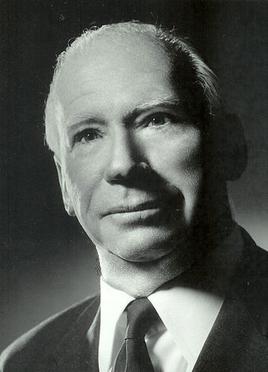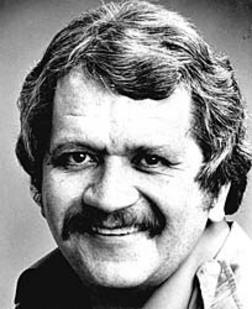
Harare, originally known as Salisbury, is the capital and most populous city of Zimbabwe. The city proper has an area of 940 km2 (371 mi2) a population of 2.12 million in the 2012 census and an estimated 3.12 million in its metropolitan area in 2019. Situated in north-eastern Zimbabwe in the country's Mashonaland region, Harare is a metropolitan province, which also incorporates the municipalities of Chitungwiza and Epworth. The city sits on a plateau at an elevation of 1,483 metres above sea level, and its climate falls into the subtropical highland category.

The Moody Blues were an English rock band formed in Birmingham in May 1964. The band initially consisted of drummer Graeme Edge, guitarist and vocalist Denny Laine, keyboardist and vocalist Mike Pinder, multi-instrumentalist and vocalist Ray Thomas, and bassist and vocalist Clint Warwick, with Edge being the group's sole continuous member throughout their entire history. Originally part of the British beat and R&B scene of the early–mid 1960s, the band came to prominence with the UK No. 1 and US Top 10 single "Go Now" in late 1964/early 1965. Laine and Warwick left the band by the end of 1966, being replaced by guitarist and vocalist Justin Hayward and bassist and vocalist John Lodge. They embraced the psychedelic rock movement of the late 1960s, with their second album, 1967's Days of Future Passed, being a fusion of rock with classical music that established the band as pioneers in the development of art rock and progressive rock. It has been described as a "landmark" and "one of the first successful concept albums".

Paul Rodgers is a British-Canadian singer, songwriter and musician. He was the lead vocalist of numerous rock bands, including Free, Bad Company, the Firm, and the Law. He has also performed as a solo artist, and collaborated with the remaining active members of Queen under the moniker Queen + Paul Rodgers. A poll in Rolling Stone magazine ranked him number 55 on its list of the "100 Greatest Singers of All Time". In 2011 Rodgers received the British Academy's Ivor Novello Award for Outstanding Contribution to British Music.

Johnny Shuggie Otis is an American singer-songwriter, recording artist, and multi-instrumentalist.
John Charles Edward Alder, also known as Twink, is an English drummer, actor, singer, and songwriter who was a central figure in the English psychedelic movement.
Alex Wharton, later also known as Alex Murray, was part of the singing duo the Most Brothers with Mickie Most, and later, co-manager and producer of the Moody Blues.

Harare Sports Club is a sports club and the Harare Sports Club Ground is a cricket stadium in Harare, Zimbabwe. Founded in 1900 and known as Salisbury Sports Club until 1982, it is mostly used for cricket matches, and has served as the primary cricket venue in Rhodesia and Zimbabwe since its foundation. Other sports played at the club are rugby, tennis, golf and squash.

The Zimbabwe national rugby union team, nicknamed the Sables, represents nation of Zimbabwe in international competition, and is administered by the Zimbabwe Rugby Union. While sides representing the colony of Rhodesia have played as early as 1910, the modern day Zimbabwe rugby team did not play its first test until 1981, against Kenya. Zimbabwe has competed in two World Cups, in 1987 and 1991, in place of South Africa, who were sanctioned by the IRB at the time due to apartheid. Zimbabwe is categorized as Tier 3 Development One, which prioritizes Zimbabwe over other nations due to historical success as well as popularity of rugby in the nation.
John Ford is a British musician. He relocated to the United States in the mid-1980s and now resides on the North Shore of Long Island, New York.

The Rhodesia cricket team played first-class cricket and represented originally the British colony of Southern Rhodesia and later the unilaterally independent state of Rhodesia which became Zimbabwe. In 1980 the Rhodesia cricket team was renamed as the Zimbabwe-Rhodesia cricket team, and in 1981 it adopted its current name of the Zimbabwe national cricket team.
This article is an introduction to the history of first-class cricket in Zimbabwe, formerly Rhodesia and Southern Rhodesia. The timespan of the article is from the formation of a first-class Rhodesian team in August 1890 until the inaugural Test appearance of Zimbabwe in October 1992.
August Musarurwa was the Zimbabwean composer of the 1950s hit tune "Skokiaan".

Jack William Pithey was a Rhodesian politician who served as the unrecognised state's Acting President between 1 November 1978 and 5 March 1979. He was also the President of the Senate of Rhodesia from 1970 to 1978 having previously been Member of Parliament for the Avondale constituency in north-west Salisbury between 1964 and 1970.

Clem Tholet was a Rhodesian folk singer who became popular in the 1970s for his Rhodesian patriotic songs. He reached the height of his fame during the Rhodesian Bush War.

The Onyx or Onyx were a psychedelic rock band formed in Wadebridge, Cornwall, England in 1965. Descended from a band called Rick & The Hayseeds, the group came to be known as The Onyx Set, named after an Onyx ring owned by original band member Mike Black-Borow. After various changes in the line-up they shortened their name to The Onyx and the classic line-up was formed. The band members were guitarist Alan Hodge, who had previously played with various local bands such as The Buccaneers and The Fabulous Jaguars, vocalist Tony Priest, bassist Dick Bland, keyboard player Steve Cotton and drummer Roger Dell.
Ivor Kirchin was a British band leader, and the father of noted composer Basil Kirchin (1927–2005).
CCP Records is a South African music entertainment company founded by Clive Calder and Ralph Simon. It is a production company. They envisioned the company while working for EMI South Africa in 1972. CCP Records was distributed by EMI Records South Africa. EMI purchased the company in that same year.
Tab Martin is an English bass guitarist. He has been a member of well-known English bands from the 1960s. He was a member of the Tornados and played on their hit "Globetrotter". He was also a member of the Peddlers and played on their hits "Birth" and "Girlie". He also founded 1960s group the Saints.
The Rhodesian Dunlop Masters was a golf tournament that was held in Rhodesia. It was an event on the South African Tour until the late 1970s.
The Police Grounds are a set of cricket grounds in Harare. Located at the Morris Police Depot, the grounds have played host to first-class cricket. The 'A' ground first hosted first-class cricket in 1957, when Rhodesia played the touring Australians. The 'A' ground hosted 29 first-class matches for Rhodesia until 1968, most of which came in the Currie Cup. The 'B' ground began hosting first-class cricket in 1970, with Rhodesia playing against Transvaal. The 'B' ground hosted 27 first-class matches for Rhodesia until 1980, the majority of which came in the Currie Cup. The 'B' ground also played host to seven List A one-day matches from 1970 to 1978.








